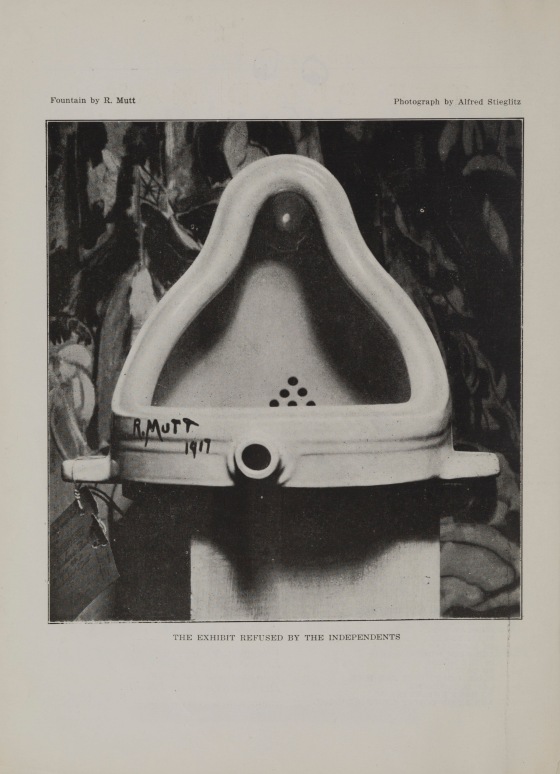The School of Life on some pivotal moments in the development of Romanticism, adjusted the way we feel and look at the world – influencing thoughts on love, nature, industry and children.
Related : A longer piece on the shortcomings of Romanticism.
You've got to dig to dig it, you dig?
The School of Life on some pivotal moments in the development of Romanticism, adjusted the way we feel and look at the world – influencing thoughts on love, nature, industry and children.
Related : A longer piece on the shortcomings of Romanticism.
Text by Nick Romeo
Behavioural economics […] celebrated for identifying and analysing many of the core biases in human cognition.
Plato not only identified various specific weaknesses in human cognition, he also offered powerful proposals for how to overcome these biases and improve our reasoning and behaviour.
Plato’s dialogues dramatise the habits and processes that lead humans to false conclusions. He depicts people believing what they want or what they are predisposed to believe (confirmation bias); asserting whatever comes most readily to mind (availability bias); reversing their opinions about identical propositions based on the language in which the propositions are presented (framing); refusing to relinquish current opinions simply because these happen to be the opinions they currently possess (a cognitive version of loss aversion); making false inferences based on the size and representativeness of a sample of a broader population (representativeness heuristic); and judging new information based on salient current information (a version of anchoring).
Much more on Aeon.
How to Live Together: Novelistic Simulations of Some Everyday Spaces
Roland Barthes, 1976–1977. Translated by Kate Briggs, 2012.
Columbia University Press
How to Live Together …, a series of lectures exploring solitude and the degree of contact necessary for individuals to exist and create at their own pace.
…In this work, Barthes focuses on the concept of “idiorrhythmy,” a productive form of living together in which one recognizes and respects the individual rhythms of the other. He explores this phenomenon through five texts that represent different living spaces and their associated ways of life: Émile Zola’s Pot-Bouille, set in a Parisian apartment building; Thomas Mann’s The Magic Mountain, which takes place in a sanatorium; André Gide’s La Séquestrée de Poitiers, based on the true story of a woman confined to her bedroom; Daniel Defoe’s Robinson Crusoe, about a castaway on a remote island; and Pallidius’s Lausiac History, detailing the ascetic lives of the desert fathers.
Claude Coste le lundi 6 août 2012 à Lagrasse, dans le cadre du Banquet du livre d’été.
…Solitaire ou solidaire.
…successful idiorrhythmy via the writer(artist)’s life.
Madeleine Boschan – if ever before, far off, and listen. 2015. Galerie Bern Kugler.
Madeleine Boschan – Collectors Agenda. Website. IG.
Douglas Burnham elucidates Kant’s Critique of Judgment. Kant discussed aesthetic judgement, taste, beauty, claims leading to formalism, aesthetic ideas (leading to conceptualism and to formlessness), aesthetic experience, the sublime, genius and fine art. Also, Kant bridged aesthetics to ethics.
A refresher and/or necessary reading in relation to Duchamp’s Fountain. NSU Art Museum celebrates the centenary of Fountain. Fountain and the stories told about it seem to dramatize Critique of Judgment.
I would separate the valorization of Duchamp from the mythologizing of Fountain.

[soundcloud url=”https://api.soundcloud.com/tracks/320932359″ params=”auto_play=false&hide_related=false&show_comments=true&show_user=true&show_reposts=false&visual=true” width=”100%” height=”450″ iframe=”true” /]
Baroness Elsa von Freytag-Loringhoven might need to be acknowledged.
Related – Burnham answers questions via AskPhilosophers.
Projecting the Arcades: A Talk at the Jewish Museum Takes Up Walter Benjamin by Malaya Sadler, Artnews
Jens Hoffman talked with Boris Groys and Michael Taussig.
To Groys, The Arcades Project represents Benjamin’s effort as an inveterate flâneur to “combine vita activa and vita contemplativa in a new way. Movement and repetition become mediated and combined,” he said. The flâneur, at once dispassionate and highly sensitive, adopts a contemplative disposition and also mobilizes it.
Taussig noted that he might read The Arcades Project and its cultural criticisms as a movement toward awakening from the spell of the consumer mythos of 19th-century Paris—and maybe from the spell of history itself. Benjamin’s conception of history, said Taussig, is coupled with an awareness of technology and a resistance to using archetypes, or static concepts, to understand an ever-changing and permeable modern world.